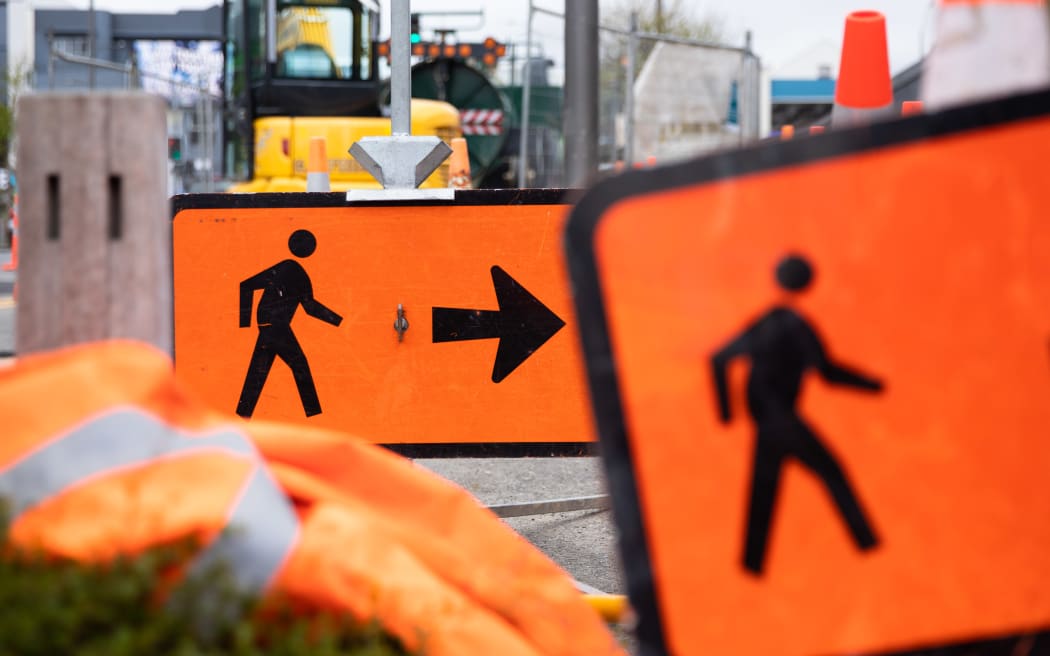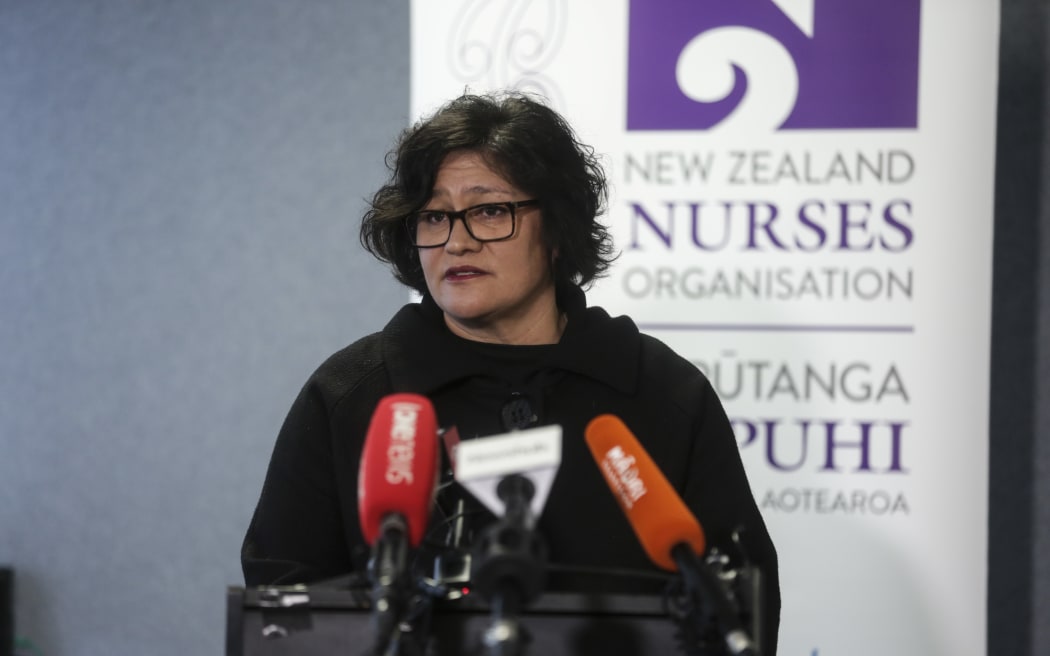
Some registered nurses have taken up working on the roads rather than go back to nursing. Photo: RNZ / Angus Dreaver
Nearly half the country's nurses are not working as nurses, with some even taking jobs in supermarkets or on road gangs in preference to healthcare.
Te Whatu Ora is keen to persuade some back to the front lines to help fill chronic shortages.
However, one former nurse said returning to work in the health system would be like going back into an "abusive marriage".
Amanda Homewood walked away from nursing in 2021 after nearly four decades. She has made a conscious decision to let her practising certificate lapse to safeguard her own health and wellbeing, in case she is tempted to go back.
"I know there are heaps of really amazing nurses and others in the health system who are really on their knees and I've struggled with leaving them and coming out of the fray. I've felt quite guilty at times over that."
Homewood said she loved most of her 37 years nursing, but the underfunded system - and what it was doing to patients and staff - ground her down.
"Until the system is fixed I wouldn't go back to it, it would be like going back into an abusive marriage to be honest, that's how it felt by the end. It was like a toxic relationship."
There were more than 150,000 nurses on the New Zealand Register of Nurses - but that included those who have retired and others who left the profession decades ago.
Just under 75,000 held annual practising certificates allowing them to work.
Nurses Organisation kaiwhakahaere Kerri Nuku said many were just "burned out". She knew nurses who had opted to work in supermarkets and one who had joined a roading crew.
"As she said, she's earning more money than what she did as nursing and it's not nearly as taxing."

Kerri Nuku. Photo:
Union president Anne Daniels said Queensland and California had legally mandated nurse-patient ratios boosting their workforces.
"What has attracted those nurses back to nursing is knowing they are going back to a safe work environment where they will be supported to their job to the best of their ability, as opposed to having to constantly make priority decisions about who's going to get the care and who's not."
The Nursing Council estimated between 4 and 5 percent of the more than 70,000 nurses with current practising certificates were not working as nurses in New Zealand when they renewed them.
"That's 3500 nurses, which is nearly as many nurses as would fill the vacancies that we need."
Former Southland Hospital ED nurse Kerri Templeton quit last year after less than two years. Five other nurses in her department resigned in the same week.
In an open letter to then Health Minister Andrew Little, she wrote she feared someone would die as a result of under-staffing.
But after six months travelling overseas and working on a superyacht, she is starting a new job at Christchurch Hospital ED in January.
"I didn't miss it to start with, I was more just recovering and having a life again.
"I am excited to go back but I'm aware that things are probably not any better than when I left. I guess I'm a bit more prepared in that I know what to expect now."
In its workforce stocktake in July, Te Whatu Ora estimated the system was short about 4800 nurses, despite a nearly 23 percent increase in the number of nurses employed by Te Whatu Ora in the last five years.
Director of workforce development and planning, John Snook, said increasing the number of nurses was "a vital part" of the plan to boost the medical workforce with the recent pay increases and training initiatives.
The Return to Nursing fund provides up to $5000 to help New Zealand nurses to get a current practising certificate, and foreign nurses who are residents or citizens with the cost of gaining registration in this country. So far this year the fund has received 228 applications for support.
In the last 12 months, 12,719 new nurses joined the register, of whom 82 percent were overseas trained. However, it was not possible to say how many of those would work in New Zealand.






